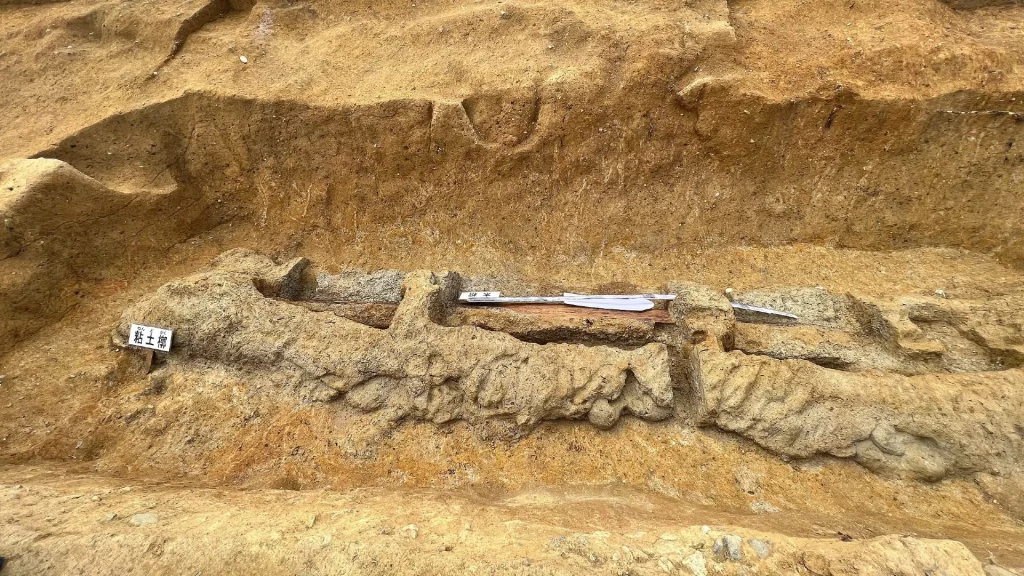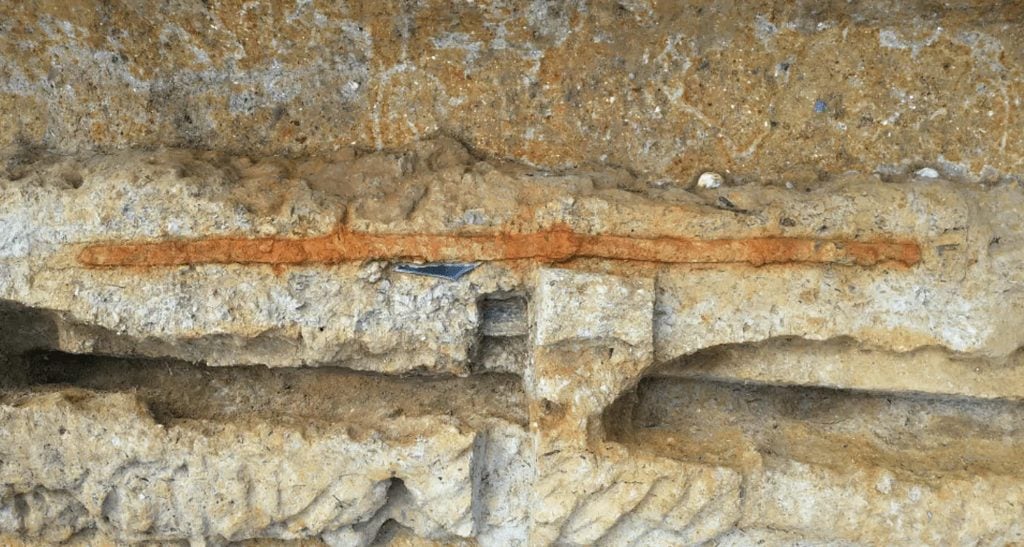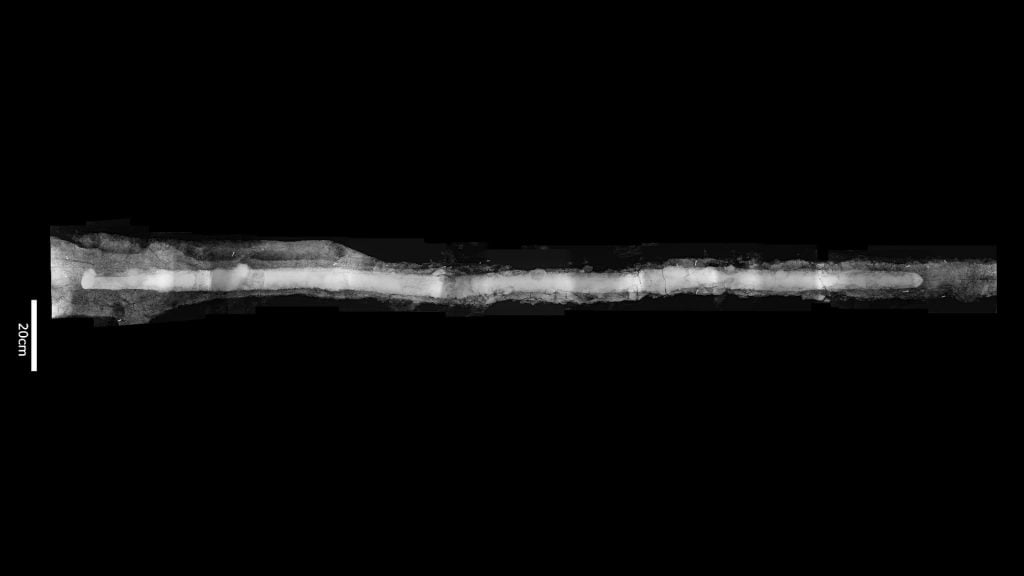Archaeology & History
Archaeologists in Japan Have Unearthed a Gigantic 4th-Century ‘Dakō’ Sword That Dwarfs Any Blade Ever Found in the Country
The sword is far too large to have been used for self defense, researchers say.

The sword is far too large to have been used for self defense, researchers say.

Caroline Goldstein

Archaeologists working in Japan have unearthed a massively oversized sword in a 1,600-year-old burial site, leading researchers to believe that the unwieldy weapon was buried with the deceased to ward off evil spirits in the afterlife. Measuring a startling 7.5 feet (2.3 meters), the iron sword was discovered as part of a dig at the Tomoio Maruyama burial mound, located west of the city of Nara. The sword is distinctive in its length and its design. In addition to the exaggerated size, far too large for even a burly individual to use for self-defense against a foe, the sword is also designed with an undulating blade pattern, classified in the “dakō” style.

The iron dakō sword uncovered at the Tomio Maruyama burial mound in Nara, western Japan. Photo: Archaeological Institute of Kashihara, Nara.
Other wavy-bladed weapons dating from the 4th century have been found, but according to Riku Murase, a researcher with the Nara City Archaeological Research Center, this one is “twice as big as any other sword found so far” in the country. Speaking to Live Science, which first reported the discovery last month, Murase said: “It was so long I doubted it was true.” Stefan Maeder, an archaeologist specializing in ancient swords told the outlet that the large dakō is rare, adding “they are prestigious objects of high society” that served a ceremonial purpose.

An X-ray image of the sword. Photo: Archaeological Institute of Kashihara, Nara.
The famed Tomoio Maruyama burial mound has yielded other impressive discoveries including iron farming tools, utensils, and copper containers. Likely the final resting place of a member of the extended imperial Yamato family, the burial chamber—which measures more than 350-feet across and 32-feet tall—contained a coffin, but no human remains. There may be more than 160,000 of these burial mounds, or “kofuns” around Japan, though most are significantly smaller than this one in Nara. More Trending Stories: Banksy Created His Latest Artwork on a Rundown Farmhouse by the British Seaside—Only to Have It Immediately Destroyed A German Man Just Learning How to Use a Metal Detector Uncovered a Hoard of Buried Byzantine Jewelry and Silver Coins The New York Art World Had High Hopes for Black Wall Street Gallery. Allegations Against Its Founder Have Soured Those Dreams New York’s ‘Hot Dog King’ Has Held Court Outside the Met Museum for Years. Now Fans Are Rallying to Stop the City From Ejecting Him Sotheby’s Surrealism Sale Fails to Meet Expectations, Pulling in an Under-Estimate $18 Million With Several Blue-Chip Works Going Unsold In His Upstate New York Studio, Stefan Bondell Paints Day and Night, Fueled by Hudson River Light and Copious Amounts of Sugar We Spoke to the ‘Anguished’ Barcelona Residents Fighting to Prevent the Completion of Gaudí’s Famed Sagrada Familia ‘All the Beauty and the Bloodshed’ Is a Truly Great Artist Documentary. Here’s What Makes It Work So Well Who Was Leonardo da Vinci’s Mom, Actually? A Provocative New Book Suggests She Was a Slave From the Caucasus of Central Asia Kenny Schachter Pays a Mind-Bending Visit to Beeple’s New High-Tech Art Compound (Getting in Plenty of Trouble Along the Way)